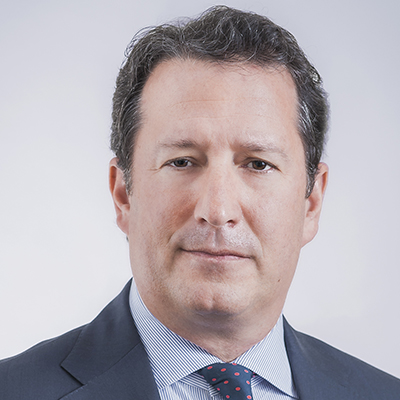The gods must have an evil sense of humor.
Covid-19 has forced tens of millions of people to spend more time than ever before at home—often glued to TVs or computer screens—and everyone is under a nearly constant assault of nasty political ads.
The content is so grating and outrageous that PsyOps warriors could stream the ads to psychologically weaken enemy combatants instead of blaring hysterically crying babies. By Nov. 3, the nastiness may end—or begin anew—when the world learns whether Donald Trump will remain president or if Joe Biden, his Democratic challenger, will succeed him.
Many polls predict that Biden will win, and some suggest that Trump’s loss will be profound. It’s dangerous to be overconfident, though much of Wall Street now is. When Trump last ran, Hillary Clinton was expected to trounce him—and the Street was wrong in a “Dewey Beats Truman” kind of way.
It’s time to start looking past the political theater to what happens next. Eventually, Covid-19 will be controlled by a vaccine. When that happens, restaurants will once more flourish, people will travel, and the financial and commercial real estate sectors will probably normalize.
Without a doubt, wagering on vaccines, like much pharmaceutical-sector investing, is hard for anyone without specialized scientific knowledge. The key to covering the knowledge gap is focusing on the companies that would benefit from a vaccine and finding a reasonably cost-effective way to invest.
John Marshall, a Goldman Sachs derivatives strategist, recently advised clients to consider 35 stocks that would benefit when the economy fully reopens. The stocks have trailed the S&P 500 index by about 10% over the past month and about 48% this year. “The reopening trade does not appear crowded,” Marshall wrote in a recent note.
Goldman’s “Positive Reopening Reactors” include American Airlines Group (ticker: AAL), Alaska Air Group (ALK), Delta Air Lines (DAL), SL Green Realty (SLG), United Airlines Holdings (UAL), Simon Property Group (SPG), Boeing (BA), Zions Bancorp (ZION), Host Hotels & Resorts (HST), Kohl’s (KSS), Kimco Realty (KIM), PVH (PVH), Wells Fargo (WFC), and Huntington Bancshares (HBAN).
Others include Norwegian Cruise Line Holdings (NCLH), Textron (TXT), Loews (L), Boston Properties (BXP), Carnival (CCL), Federal Realty Investment Trust (FRT), U.S. Bancorp (USB), Nordstrom (JWN), Prudential (PRU), UDR (UDR), Marriott International (MAR), Royal Caribbean Group ( RCL ), Ralph Lauren (RL), Vornado Realty Trust (VNO), Southwest Airlines (LUV), CBRE Group (CBRE), Regency Centers (REG), Equity Residential (EQR), Raytheon Technologies (RTX), Essex Property Trust (ESS), and General Electric (GE).
Goldman told clients to buy bullish call options on the stocks, an approach that costs less than buying equities. (Calls give the holder the right to buy a security at a set price and time.) Timing is key, so look for stocks that are intriguing, choose one-month expirations, and pick strike prices that are 5% to 10% above the stock price. The average 10% out-of-the-money call on the group costs about 2.9% of the stock price.
Using calls as stock surrogates is risky. Buying call options on stocks that don’t advance, or that decline, often generates losses. Once a call is bought, be prepared to sell it once it nears expiration and to “roll” into the next month, ideally by buying another call that costs less or the same amount. Sometimes, more money is needed to adjust the trade.
This style of investing isn’t for everyone. It’s hard to identify compelling themes, and cost-effectively control investments, while waiting for the upside to emerge. Those who can, however, often find themselves on the right side of events.
—
Originally Posted on October 22, 2020 – Preparing for a Vaccine With Call Options
Disclosure: Interactive Brokers
Information posted on IBKR Campus that is provided by third-parties does NOT constitute a recommendation that you should contract for the services of that third party. Third-party participants who contribute to IBKR Campus are independent of Interactive Brokers and Interactive Brokers does not make any representations or warranties concerning the services offered, their past or future performance, or the accuracy of the information provided by the third party. Past performance is no guarantee of future results.
This material is from Barron's and is being posted with its permission. The views expressed in this material are solely those of the author and/or Barron's and Interactive Brokers is not endorsing or recommending any investment or trading discussed in the material. This material is not and should not be construed as an offer to buy or sell any security. It should not be construed as research or investment advice or a recommendation to buy, sell or hold any security or commodity. This material does not and is not intended to take into account the particular financial conditions, investment objectives or requirements of individual customers. Before acting on this material, you should consider whether it is suitable for your particular circumstances and, as necessary, seek professional advice.
Disclosure: Options Trading
Options involve risk and are not suitable for all investors. Multiple leg strategies, including spreads, will incur multiple commission charges. For more information read the "Characteristics and Risks of Standardized Options" also known as the options disclosure document (ODD) or visit ibkr.com/occ

























